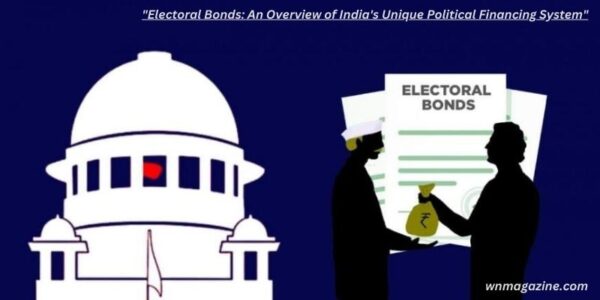Today, the Supreme Court is set to deliver its verdict on several petitions challenging the legality of the Electoral Bonds program, which allows political parties in India to receive anonymous funding. The decision comes after a five-judge panel, led by Chief Justice of India DY Chandrachud, had deferred its ruling on November 2 of the previous year. The panel included Justices Sanjiv Khanna, BR Gavai, JB Pardiwala, and Manoj Misra.
Electoral bonds, serving as legal tender, can be purchased by individuals or businesses in India, functioning similarly to promissory notes or bearer bonds. These bonds are specifically designed for funding political parties, and the State Bank of India issues them in denominations of Rs 1000, Rs 10,000, Rs 1 lakh, Rs 10 lakh, and Rs 1 crore. Corporate and foreign entities could contribute under this scheme, enjoying 100% tax exemption, with both the recipient political parties and the bank keeping the donor’s identities confidential.
Also Read: wellhealthorganic vitamin b12
How do donations get made?
The process of making donations involves buying electoral bonds through a KYC-compliant account, and political parties have a deadline to encash the donations after the funds are transferred. Importantly, there is no limit to the quantity of electoral bonds that an individual or business can purchase.
Electoral bonds are available for funding only to political parties registered under Section 29A of the Representation of the People Act, 1951, and those that received at least 1% of the total votes cast in the most recent Lok Sabha or state legislative assembly elections.
The scheme for electoral bonds and the case.
The electoral bond program was initially announced during the 2017 Budget Session by former finance minister Arun Jaitley. Subsequently, in January 2018, changes to the Finance Act and the Representation of the People Act were introduced as money bills, amending the Reserve Bank of India Act, the Companies Act, the Income Tax Act, and the Foreign Contribution Regulation Act (FCRA) to implement the scheme. However, the program faced legal challenges from the CPI Congress and several NGOs who filed petitions in the Supreme Court, questioning its constitutionality.
The hearings on the matter commenced on October 31 of the previous year, with petitioners raising concerns about the scheme’s legality and its potential threats to the nation. Criticisms included allegations of encouraging corruption, providing access to shell companies, and violating the right to information. Kapil Sibal, a senior advocate and Rajya Sabha member, highlighted the issue of political parties using donations for purposes other than elections. The Supreme Court’s ruling is eagerly awaited in this contentious case.
Also Read: well health tips in hindi wellhealth
